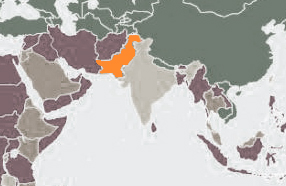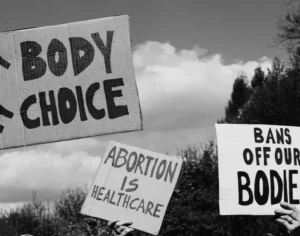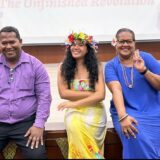Abortion in Pakistan: Morality Becomes More Restrictive Than the Law
While on the topic of Stigma, we’d like to re-publish this guest blog by Uzma Farooq, an Advocacy Officer for Women’s Health at Shirkat Gah – Women’s Resource Centre in Pakistan. In this blog, Uzma explores the connection between the laws regulating abortion, and the actual availability of abortion care. “There are situations where it is legal and yet not provided,” she writes; “and where the laws on the face of it are restrictive yet the reason for refusing abortion may not be due to the law.” Pakistan, she explains, happens to be an example of the latter scenario.
 Abortion in Pakistan remains a heavily stigmatized issue on which any discourse inevitably becomes a debate regarding itson morality. A study released in 2005, by the Population Council of Pakistan and the Guttmacher Institute, found that 890,000 abortions occur in Pakistan every year and, given that this data was collected mostly through women hospitalized for post abortion complications, one can expect this figure to be grossly understated. This study has now been quoted numerous times, and yet one can wonder, to what avail? Most abortions are carried out in an unsafe and clandestine manner, and are considered to be among the leading causes of maternal mortality, which stands at 270 per 100,000 live births.
Abortion in Pakistan remains a heavily stigmatized issue on which any discourse inevitably becomes a debate regarding itson morality. A study released in 2005, by the Population Council of Pakistan and the Guttmacher Institute, found that 890,000 abortions occur in Pakistan every year and, given that this data was collected mostly through women hospitalized for post abortion complications, one can expect this figure to be grossly understated. This study has now been quoted numerous times, and yet one can wonder, to what avail? Most abortions are carried out in an unsafe and clandestine manner, and are considered to be among the leading causes of maternal mortality, which stands at 270 per 100,000 live births.
In the year 1990 the law on abortion was amended to bring it “within conformity” of Islamic principles. Presently, under Section 338 of the Pakistan Penal Code, abortion is only permissible for saving the life of the mother or providing her necessary treatment (until the organs of the child have formed, following which only the life exception applies). It has been argued that the problem is not with the law — as no one has ever been prosecuted under it — but with service providers who do not perform the procedure due to their own moral reservations. An Asia Safe Abortion Partnership report found that 67% of medical professionals in Pakistan have an unfavorable attitude to abortion and of those wanting change to the existing law, 81 percent called for stricter laws to be introduced. (Asia Safe Abortion Partnership, A Study of Knowledge, Attitudes and Understanding of Legal Professionals about Safe Abortion as a Woman’s Right. Please read the paper to understand the social and religious context in which abortion is understood by a majority of Pakistan’s legal professions and health care providers.)
Government policies , too, are also reflective of anti- abortion biases. For instance, the Midwifery Tutor’s Guide published by the Pakistan Nursing Council, prohibits its members to
- provide advice and information regarding the benefits and availability of abortion as a method of family planning
- provide advice on the option of abortion after methods of family planning have not been used, or are not successful
- encourage women to consider abortion
- lobby to make abortion legal
- conduct a public information campaign regarding the benefits and/or availability of abortion as a method of family planning.
Furthermore, in 1997 a government backed enquiry commission for women recommended that until 120 days of pregnancy abortion should be an absolute legal right but this recommendation was never put into policy. Where law and policy both attach such negative connotations to abortion, it can only logically follow that abortion becomes a stigmatized issue and results in service provider bias.
There are currently great efforts made by civil society to improve access to safe abortion services, by advocating for post abortion care and holding sensitization workshops. However, many of them still believe that touching upon the law could have disastrous consequences and that the concept of abortion as a legal right for any woman is a message that governments and service providers are not yet ready to hear.
Uzma Farooq, is a Karachi-based lawyer who is currently working as an Advocacy Officer for Women’s Health at Shirkat Gah – Women’s Resource Centre. Uzma’s second blogpost on Pakistan’s adherence to international covenants like the MDG and CEDAW will be published later this week.
Shirkat Gah literally means a place of participation. It was formed as a non-hierarchical collective in 1975 by a group of women with shared perspectives on women’s rights and development. The organization’s fundamental goal is to encourage women to play a full and equal role in society by promoting and protecting the social and economic development of women already participating in, or wanting to participate in national development.







